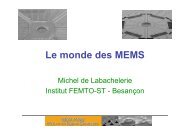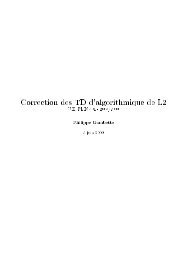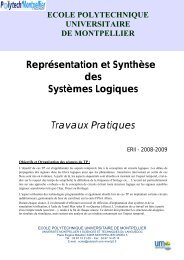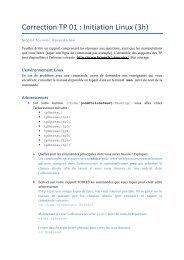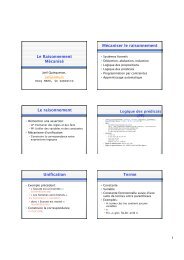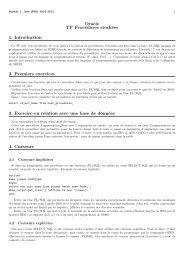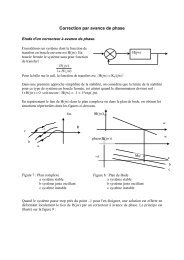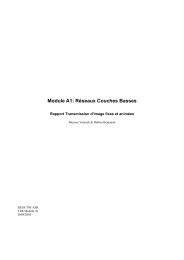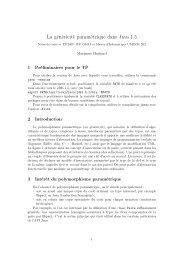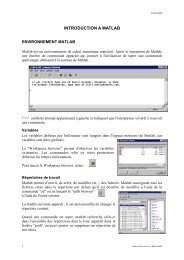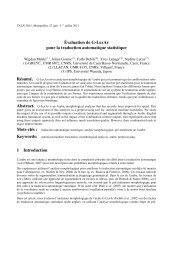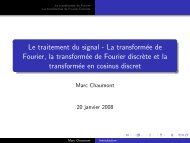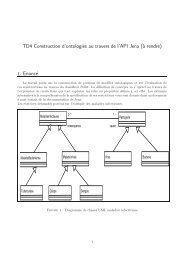Evaluating User Experience in Games: Concepts and Methods - Lirmm
Evaluating User Experience in Games: Concepts and Methods - Lirmm
Evaluating User Experience in Games: Concepts and Methods - Lirmm
Create successful ePaper yourself
Turn your PDF publications into a flip-book with our unique Google optimized e-Paper software.
12 Beyond the Gamepad 215<br />
<strong>in</strong>teraction is happen<strong>in</strong>g (Bevan <strong>and</strong> McLeod 1993). It is important to consider that<br />
this refers not only to the physical environment, but also to the <strong>in</strong>dividual differences<br />
<strong>and</strong> the social environment <strong>in</strong> which the <strong>in</strong>teraction is tak<strong>in</strong>g place. While this concept<br />
is vital when study<strong>in</strong>g all forms of technology, it is especially important when<br />
work<strong>in</strong>g with control devices because, as <strong>in</strong>teraction facilitation devices, they <strong>in</strong>troduce<br />
additional complexity that must be considered. The device a controller is be<strong>in</strong>g<br />
used to control has a huge <strong>in</strong>fluence on the usability of the <strong>in</strong>teraction. In terms of<br />
game controllers, this means both the hardware (PC or console) <strong>and</strong> software (the<br />
specific game) must be considered <strong>in</strong> design.<br />
12.3.4 <strong>Experience</strong> <strong>and</strong> Game Controllers<br />
This f<strong>in</strong>al aspect of <strong>in</strong>teraction design is perhaps the most recent to be explored.<br />
<strong>Experience</strong> refers to the psychological <strong>and</strong> social impact technology has on users.<br />
While this is related to the usability concept of satisfaction, it has a much wider<br />
scope, look<strong>in</strong>g at <strong>in</strong>teraction <strong>in</strong> a much broader sense than merely task completion.<br />
When study<strong>in</strong>g experience, concepts external to the <strong>in</strong>teraction must be considered,<br />
for example aesthetics, market<strong>in</strong>g, social impact, attachment, <strong>and</strong> mood can<br />
all affect users’ experience of <strong>in</strong>teract<strong>in</strong>g with technology.<br />
Once aga<strong>in</strong>, the nature of game controllers as <strong>in</strong>termediary devices can make<br />
study<strong>in</strong>g this aspect of user <strong>in</strong>teraction difficult. In addition to the social, psychological,<br />
<strong>and</strong> environment factors that must be considered when look<strong>in</strong>g at experience of<br />
any technology, the hardware <strong>and</strong> software that is be<strong>in</strong>g controlled may also impact<br />
on user experience with game controllers. Little research or theory exists relat<strong>in</strong>g to<br />
user experience with game controllers, mak<strong>in</strong>g it impossible to predict what factors<br />
are key to users’ experiences <strong>in</strong> this area. However, the tools needed to explore this<br />
area do already exist; qualitative psychological methods such as critical <strong>in</strong>cidents<br />
technique, semi-structured <strong>in</strong>terview, grounded theory, content analysis, <strong>and</strong> ethnography<br />
have been used to evaluate experience <strong>in</strong> a wide range of fields (McCarthy <strong>and</strong><br />
Wright 2004), <strong>and</strong> their flexible nature means they can be easily applied to the study<br />
of game controllers.<br />
12.3.5 Evaluation <strong>and</strong> Design of Game Controllers<br />
This section discusses the impact of the McNamara <strong>and</strong> Kirakowski’s framework<br />
on research <strong>and</strong> design <strong>in</strong> this field. First, current literature is explored <strong>and</strong> then the<br />
implications for design are discussed.<br />
Look<strong>in</strong>g at recent research <strong>in</strong>to controllers <strong>in</strong> general reveals that a significant<br />
number of research papers have explored the performance of po<strong>in</strong>t<strong>in</strong>g devices<br />
(<strong>in</strong>clud<strong>in</strong>g mice, touch pads, <strong>and</strong> trackballs), keyboards <strong>in</strong> traditional desktop/laptop<br />
comput<strong>in</strong>g scenarios, <strong>and</strong> keypads usage on h<strong>and</strong>held devices (Card et al. 1978,<br />
MacKenzie 1992, Silfverberg et al. 2000). In recent years, HCI researchers have<br />
also explored a variety of <strong>in</strong>creas<strong>in</strong>gly popular <strong>in</strong>teraction methods <strong>in</strong>clud<strong>in</strong>g gesture,<br />
touch, haptics, <strong>and</strong> styluses (Dennerle<strong>in</strong> et al. 2000, Forl<strong>in</strong>es et al. 2007,



